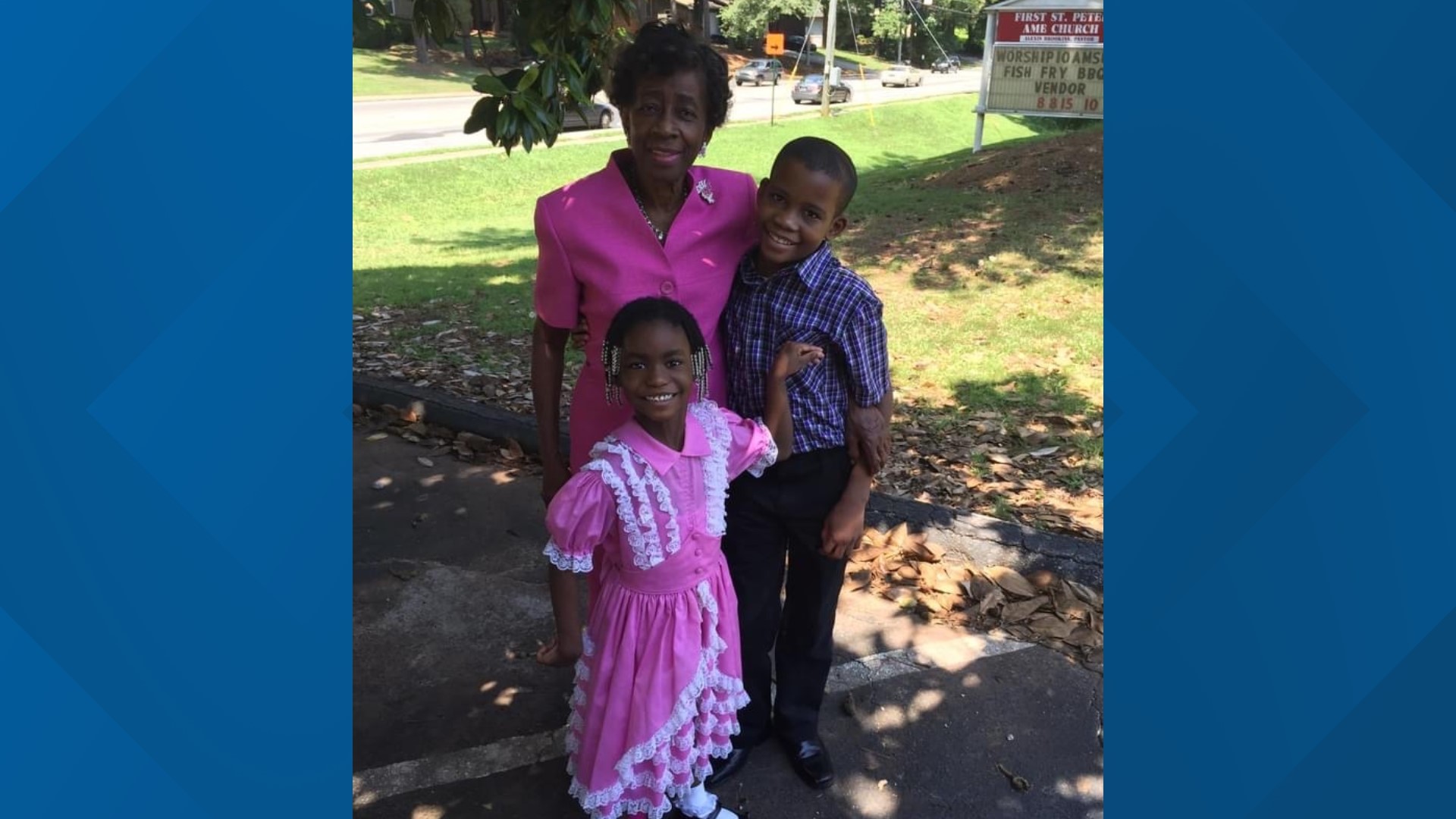ATLANTA — The Georgia Supreme Court released an opinion Tuesday that appears to limit how much a family will be able to receive in a wrongful death lawsuit against the city of College Park related to a 2016 police chase crash that left a grandmother and her two grandchildren dead.
At issue was whether state law allowed for the city, through its insurance policy, to be held liable for the deaths of 75-year-old Dorothy Wright, her 12-year-old grandson Cameron Costner and her 6-year-old granddaughter Layla Partridge beyond a standard $700,000 limit established under state law.
The grandmother and the two children were hit by a driver being chased by College Park Police while they were on their way to church on Jan. 31, 2016. Their lawyers have characterized the chase as a "reckless high-speed pursuit."
The city had held a $5 million policy through Atlantic Specialty Insurance Company, which lawyers for the family argued waived the city's ability to be held to the $700,000 cap, which by state law is meant to serve as a standard waiver of sovereign immunity legal provisions that would otherwise bar anyone from suing a city at all.
The insurance company, however, argued that their policy was only designed to cover College Park beyond $700,000 on matters for which sovereign immunity did not apply. The Georgia Supreme Court agreed, holding that the mere existence of the policy did not waive sovereign immunity beyond $700,000, overruling earlier decisions by the original trial court and Georgia Court of Appeals in favor of the $5 million figure.
A release from the Georgia Supreme Court explains:
"Instead, the Court considered whether the City, in its discretion, purchased commercial liability insurance in excess of $700,000 that actually covers the claims at issue. And the Court found that based on a plain reading of the policy’s immunity endorsements, the City’s insurance did not cover claims – like the plaintiffs’ claims -- to which the defense of sovereign immunity applied," the release said.
Outgoing Chief Justice David Nahmias wrote in a unanimous opinion that "the City did not purchase insurance coverage for the Plaintiffs’ asserted claims above the applicable automatic sovereign immunity waiver of $700,000."
Interestingly, the opinion appeared to leave open the door that a lawsuit under federal, rather than state, law might still succeed in bringing the family $5 million.
Nahmias wrote College Park "purchased insurance coverage up to the automatic sovereign immunity waiver limits in (state law) and up to $5,000,000 in the aggregate for other claims to which sovereign immunity does not apply. For example, claims involving police chases brought under 42 USC § 1983 would not be subject to sovereign immunity and thus could be covered up to the Policy’s aggregate maximum limit of $5,000,000."
Manny Arora, an Atlanta area attorney not connected to the case, told 11Alive's Joe Henke that was unlikely however.
"The only exception is if they went into federal court and tried to say this is some kind of civil rights violation, which would be an impossible standard because these people were just innocent bystanders, so there is no way they could prove that the police targeted them for any specific reason," Arora said. "When you are just an innocent bystander in a high-speed chase, even if the police were exceeding the policy limits of how fast they can go after a car... you are pretty much capped out at $700,000 and the Supreme Court made that abundantly clear. We used to be able to sue for the entire policy limit, but that has been shut down as of this opinion.”
The alleged driver in the tragic case, Diontre Tigner, was arrested in December nearly six years after the incident, and arraigned in court last month.

